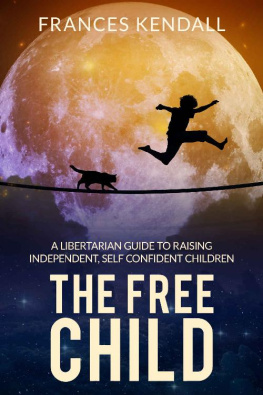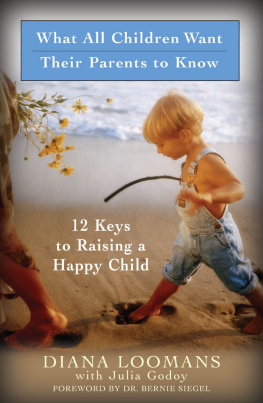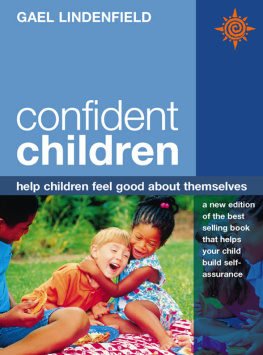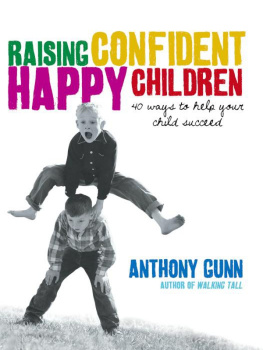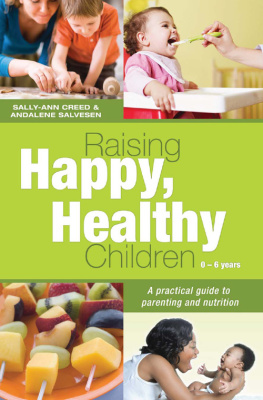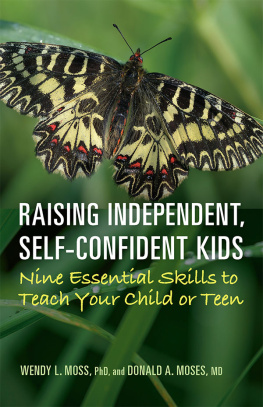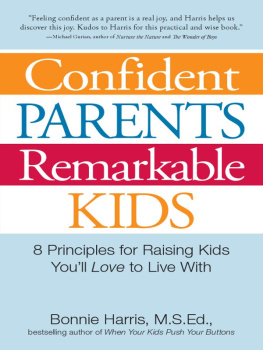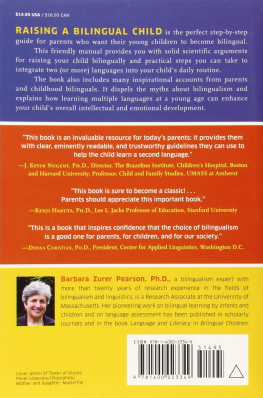Frances Kendall
The Free Child
Illustrated by the author

All rights reserved. No part of this publication may be reproduced, stored in a retrieval system, or transmitted in any form or by any means, electronic, mechanical, photocopying, or otherwise, without the prior permission of the publisher.
First published as Super Parents Super Children 1983
Reprinted 1986, 1987, 1990, 1995
EPUB Edition
Professional eBook conversion by www.MYeBook.co.za
TO MY FATHER
Your children are not your children.
They are the sons and daughters of Lifes longing for itself.
They come through you but not from you,
And though they are with you yet they belong not to you.
You may give them your love but not your thoughts,
For they have their own thoughts.
You may house their bodies but not their souls,
For their souls dwell in the house of tomorrow,
which you cannot visit, not even in your dreams.
You may strive to be like them, but seek not to make them like you.
For life goes not backward nor tarries with yesterday.
You are the bows from which your children as living arrows are sent forth.
from The Prophet
by Kahlil Gibran
Contents
Children know what food is best for them I can feed myself Junk foods Good manners Whose food is it anyway?
The family bed Bedtime rights for parents.
What is ownership? Sharing Looking after toys Tidying up.
The undisciplined baby Property rights Distraction Dont reward bad behavior Does she need attention? Good manners Obstinacy The reactor factor Cheekiness Punishment Corporal punishment Solitary confinement Withholding privileges Compensation Lying When force is justifiable Other peoples property Look to yourself Saying sorry.
Make hay while the sun shines Doing their own work Work for you The basis of human action Money The history of money Pocket money The positive spin-offs of child labor.
The age gap Prepare your child When the baby arrives If you prefer babies If you prefer one child to another Your children are individuals Fighting between siblings.
The origins of taboos The Trobriand Islanders Repression leads to violence Where do we go wrong? Your attitude to your body Your attitude to sex Privacy The requirements of society Adolescence The double standard.
Begin with your baby Playgroup or nursery school The Montessori Method Montessori in the home If she doesnt want to go to school Detention without trial All play and no work? Indoctrination When you cant find the right school.
Begin screen free Outside the home When should they get their first smart device?
Censorship Television Sexual violence Religion and philosophy Respect his views.
Driving Drinking Dating Property right disputes.
Introduction
The average relationship between parent and child is characterized by disappointment, frustration, conflict and pain. Some parents accept this situation as unavoidable. Others turn for help to the rash of child-rearing books that have appeared in response to their needs. Unfortunately these books are almost all confusing and contradictory. They offer good ideas for solving problems in specific situations but they have no simple rules that can be applied to all age groups and all problems.
Here this book departs radically from the standard literature. The methods it describes are based on a simple philosophy that is consistently applied to all aspects of the parent-child relationship. It provides basic guidelines that can be easily applied to any new problem that arises. It aims to show that parents and children can live in mutual respect, esteem and happiness, and share the same values values so elementary that they can be thoroughly integrated by the age of five.
Because this book advocates that parents treat their children as they would another adult, some of the ideas may at first seem radical or even outrageous. However, if they are given a fair trial, success will prove their validity.
At present most children are taught throughout their formative years that adults always know far better than they what is good for them. They are encouraged to obey orders rather than to make decisions. They are expected to respect adults, but receive no respect in return. Because children are small and unable to defend themselves, adults are able to coerce them by physical force.
Small wonder that when they grow up they turn to the state or church to make their decisions for them in the place of their parents and teachers. They have never been given the chance to develop confidence in their own abilities. The message has always been, You are too small, weak, silly and inexperienced to know what is right or wrong.
However, if children were reared by the sometimes revolutionary methods outlined in this book, the world would be peopled with assertive, independent and confident young. They would understand that there is no such thing as a free lunch, and that the responsibility for their happiness lies in their own hands. They would have no need or desire to impose their will on others. That would indeed be a fortunate world to bequeath to our descendants!
1. Goodbye to the Hit and Miss Method
If you would like to have the joyful experience of sharing your home with happy, confident, independent, responsible and self-disciplined children, then this book is for you.
The following pages hold the solutions to your child rearing problems, and the key to happy family interaction.
These solutions are based on a surprisingly simple and consistent set of principles. Each chapter shows how these principles can be applied in real situations that arise in day-to-day living with children.
Many of the ideas in this book are not new. They have been discussed in detail in other books, some of which are not specifically concerned with child rearing. Now, for the first time, they have been brought together and coordinated with new concepts to form the basis of an original and significant theory of parenting.
In The Child Under Six James L. Hymes Jr. says: The human child is a social creature. His sociality is a quality of the utmost significance children want to live with others. They have built into them a very special super sensitivity to all those things which make living with humans possible. The whole direction of their growth their internal maturation is toward the ways of acting that make human society possible.
I believe that this statement is true, but most people would say the opposite. They would say that the whole direction of childrens growth seems to be toward the ways of acting that make human society impossible!
Most people, when they decide to start a family, have a pretty hazy idea about why they are doing it. A couple get married, and then maybe without any planning, the woman falls pregnant. Or perhaps after one or two years they decide that now they would like to have children. That is what everyone else does and it seems the natural pattern to follow. Once a baby is on the way the mother especially, and often the father too, looks forward to the new arrival as something that will generally enrich their lives. Unfortunately this seems seldom to be the case.
In the introduction to Kids Day in and Day Out the editor writes: Until we had kids most of us believed that raising children is fulfilling and natural but it is hard, bewilderingly and painfully hard. Adele Faber and Elaine Mazlish of Liberated Parent, Liberated Child start their book: It didnt add up, if what I was doing was right, then why was so much going wrong?

